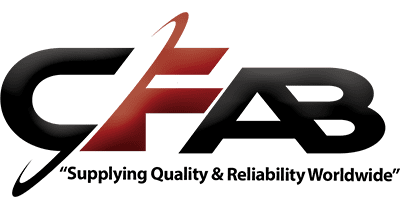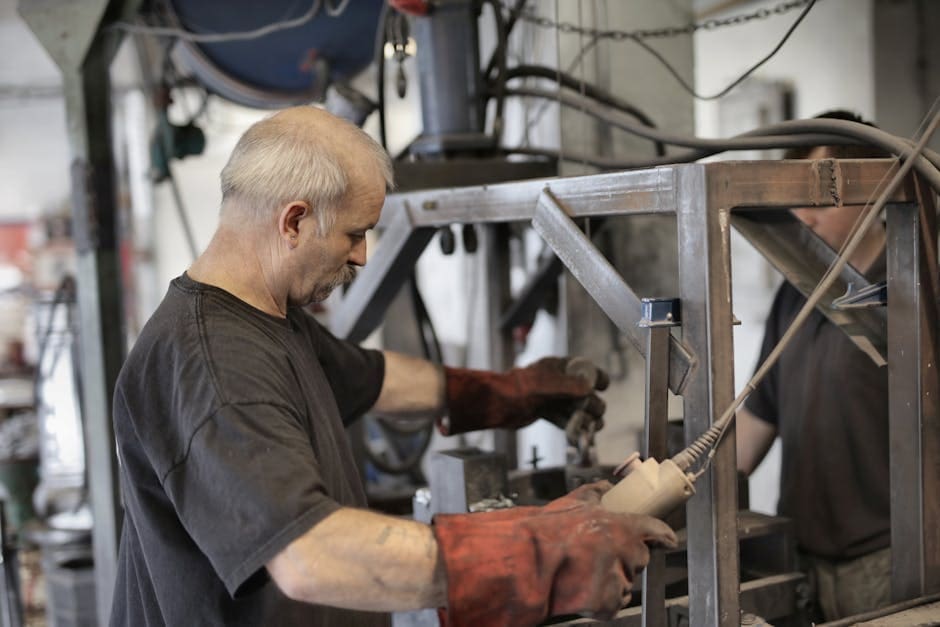Food processing equipment repair is crucial for maintaining efficiency and safety in your manufacturing operations. If you’re looking for immediate solutions to fix your equipment, here’s a quick guide:
- Regular Inspection and Cleaning: Keep equipment like marinating injectors and meat grinders clean and well-maintained.
- Upgrade to High-Quality Parts: Use durable bearings, shaft seals, and electrical components for longer-lasting repairs.
- Implement a Scheduled Maintenance Plan: Regular preventive maintenance, lubrication, and calibration can prevent future issues.
- Train Your Staff on Equipment Handling: Ensure your team knows how to properly use and troubleshoot the equipment.
- Invest in Reliable Food Processing Solutions: Consider solutions from Beth-El Machinery Ltd. for dependable equipment that meets your production needs.
In the world of food manufacturing, downtime can mean lost revenue, unsatisfied customers, and increased stress. The good news is, effective maintenance and repair can help prevent these issues. With the right approach, you can ensure your food processing equipment runs smoothly, maintaining productivity and extending the lifespan of your machinery. From routine inspections to investing in high-quality solutions like those offered by Beth-El Machinery Ltd., making these five easy changes can significantly improve your operations.


Understanding the Basics of Food Processing Equipment Repair
When it comes to keeping your food processing equipment in top shape, there are three key areas to focus on: FDA compliance, routine upkeep, and corrective repair. Let’s break these down into simple, actionable steps that can help you avoid common pitfalls and ensure your equipment operates efficiently and safely.
FDA Compliance
First and foremost, adhering to FDA regulations is not just a legal requirement; it’s a cornerstone of ensuring the safety and quality of your food products. This means:
- Regularly reviewing and understanding FDA guidelines related to food processing equipment.
- Ensuring all equipment materials, surfaces, and coatings meet FDA standards for food contact.
- Implementing cleaning and maintenance procedures that comply with FDA requirements to prevent contamination.
Routine Upkeep
Routine upkeep is all about prevention. It involves regular checks and maintenance tasks to catch and address small issues before they become big problems. This includes:
- Daily cleaning to remove food particles and potential contaminants.
- Regular inspection of equipment parts for wear and tear.
- Keeping maintenance logs to track the condition and servicing history of your equipment.
Corrective Repair
Even with the best maintenance plan, equipment failures can occur. Corrective repair focuses on fixing these issues promptly and effectively. Key points include:
- Identifying the root cause of the problem to prevent future occurrences.
- Using high-quality parts for repairs to ensure longevity and reliability. For example, opting for durable bearings, shaft seals, and electrical components can make a significant difference.
- Partnering with reputable repair services that have a track record of success in the food processing industry.
Making It Work
Implementing these basics requires a committed effort from your team and a willingness to invest in quality solutions. For those looking to upgrade or ensure their equipment meets the highest standards, Beth-El Machinery Ltd. offers a range of food processing solutions designed with these principles in mind. Their expertise in custom processing lines and systems ensures that your equipment not only meets FDA compliance but also operates at peak efficiency.
Remember, understanding and applying these basics of food processing equipment repair is not just about meeting regulatory requirements; it’s about safeguarding the quality of your food products, optimizing your operations, and ultimately, protecting your brand’s reputation. By focusing on FDA compliance, routine upkeep, and corrective repair, you’re taking essential steps toward achieving these goals.
Essential Maintenance Tips for Longevity and Efficiency
Keeping your food processing equipment in top shape is crucial. Not only does it help in ensuring the safety and quality of your food products, but it also enhances the efficiency and longevity of your machinery. Let’s dive into some essential maintenance tips that can make a big difference.
Cleaning Schedule
Regular cleaning is a must. It’s not just about keeping your equipment looking good; it’s about preventing the buildup of food particles and bacteria that can lead to contamination and equipment failure. For example, meat grinders and marinating injectors should be disassembled and cleaned thoroughly after each use. This prevents residue from hardening and causing damage or contamination.
Logs & Maintenance Records
Keeping detailed logs and maintenance records might seem tedious, but it’s incredibly valuable. These records help you track the performance of your equipment over time, identify patterns or recurring issues, and make informed decisions about preventive maintenance and repairs. Plus, in the event of a regulatory inspection, having detailed records can demonstrate your commitment to equipment upkeep and food safety.
Preventive Maintenance
Preventive maintenance is like a regular health check for your equipment. It involves inspecting, cleaning, and replacing parts before they break down. This can include tasks like lubricating moving parts, checking and tightening electrical connections, and replacing worn bearings and shaft seals. By scheduling regular preventive maintenance, you can catch small issues before they become big problems, ensuring your equipment runs smoothly and reducing downtime.
Implementing these essential maintenance tips is key to maintaining the efficiency, safety, and longevity of your food processing equipment. And when it comes to investing in reliable food processing solutions, consider Beth-El Machinery Ltd. Their high-quality equipment is designed with longevity and efficiency in mind, making them a smart choice for any food processing operation.
With these strategies in place, you can look forward to a more productive, less stressful operation that delivers high-quality food products consistently. And remember, an ounce of prevention is worth a pound of cure. Regular maintenance not only saves you time and money in the long run but also supports your goal of delivering safe, delicious food to your customers.
Moving forward, we’ll explore advanced repair techniques for common equipment issues, ensuring you’re well-equipped to handle any challenges that come your way.
Top 5 Easy Changes for Effective Food Processing Equipment Repair
Regular Inspection and Cleaning
The first step to keeping your food processing equipment in top shape is regular inspection and cleaning. Focus on machines that are crucial to your operation, such as Marinating Injectors and Meat Grinders. Dirt and debris can cause significant damage over time, not to mention the risk of contamination. A simple daily or weekly inspection can save you from unexpected breakdowns.
- Marinating Injectors: Check for clogged needles and ensure the pressure system is functioning correctly.
- Meat Grinders: Inspect blades for dullness and ensure all safety guards are in place.
Upgrade to High-Quality Parts
When repairs are necessary, upgrade to high-quality parts. This includes Bearings, Shaft Seals, and Electrical Components. High-quality parts may cost more upfront, but they last longer and perform better, reducing downtime and repair costs in the long run. This is especially true for food processing equipment, where precision and reliability are paramount.
- Bearings and Shaft Seals: Opt for materials that withstand high pressure and temperatures.
- Electrical Components: Choose parts that offer better energy efficiency and durability.
Implement a Scheduled Maintenance Plan
An effective way to prevent unexpected equipment failure is to implement a scheduled maintenance plan. This should cover Preventive Maintenance, Lubrication, and Calibration of all critical machinery. Regular maintenance not only extends the lifespan of your equipment but also ensures it runs efficiently, saving you money on energy costs.
- Preventive Maintenance: Schedule regular check-ups to identify and fix issues before they escalate.
- Lubrication and Calibration: Keep moving parts well-lubricated and ensure machines are calibrated for optimal performance.
Train Your Staff on Equipment Handling
Proper Installation Training and Troubleshooting skills are vital for your staff. Misuse and mishandling of equipment are common causes of breakdowns. Ensure your team knows how to operate, clean, and perform basic troubleshooting on all machinery. This empowers them to identify potential issues early and reduces the risk of damage due to improper use.
- Installation Training: Make sure new equipment is set up correctly and that staff are familiar with all operational procedures.
- Troubleshooting: Equip your team with the knowledge to identify and address common issues quickly.
Invest in Reliable Food Processing Solutions
Finally, invest in reliable food processing solutions from reputable suppliers like Beth-El Machinery Ltd. Their custom-engineered solutions are designed to meet the specific needs of the food processing industry, ensuring efficiency, reliability, and compliance with health standards. Whether you need state-of-the-art Pasteurization Systems or Homogenizer Systems, Beth-El Machinery offers a range of options to enhance your operation.
- Beth-El Machinery Ltd.: Offers turnkey solutions that integrate seamlessly into your existing processes, ensuring minimal downtime and maximum productivity.
By implementing these five easy changes, you can significantly improve the reliability and efficiency of your food processing equipment. Regular inspection and cleaning, upgrading to high-quality parts, scheduling maintenance, training your staff properly, and investing in reliable solutions like those from Beth-El Machinery Ltd. are key steps towards achieving a smooth-running operation.
Moving forward, we’ll delve into advanced repair techniques for common equipment issues, providing you with the knowledge to tackle even the most challenging repairs with confidence.
Advanced Repair Techniques for Common Equipment Issues
Facing equipment failures can be daunting, but with the right approach, you can tackle these issues head-on. Let’s break down some common problems like sensor issues, motor failures, and belt replacements, and explore advanced repair techniques to get your food processing equipment back in action.
Sensor Issues
Sensors play a crucial role in the operation of food processing equipment, monitoring everything from temperature to speed. When sensors malfunction:
- Diagnose Accurately: Use a multimeter to check the sensor’s resistance and compare it with the manufacturer’s specifications. This can help you determine if the sensor is faulty.
- Clean Regularly: Sometimes, sensors just need a good cleaning. Food particles and dust can interfere with their operation. Use a soft brush or compressed air to gently clean the sensor.
- Replace When Necessary: If a sensor is beyond repair, replace it with a high-quality part that matches the specifications of your equipment.
Motor Failures
Motors are the heart of your equipment, and their failure can bring your production to a halt.
- Check Electrical Connections: Loose or corroded connections can cause motor failures. Tighten all connections and replace any corroded wires.
- Overheating Solutions: Motors often fail due to overheating. Ensure your motor has proper ventilation and check for any obstructions. Sometimes, installing a higher-rated motor can provide a longer-lasting solution.
- Professional Assessment: For complex issues, consulting with a professional can save time and money. They can often diagnose problems that aren’t immediately apparent.
Belt Replacements
Belts are common in food processing equipment, and wear and tear can lead to breaks and inefficiencies.
- Regular Inspection: Inspect belts for signs of wear, such as cracks or fraying. Catching issues early can prevent unexpected downtime.
- Proper Tensioning: Incorrectly tensioned belts can cause premature wear. Refer to the manufacturer’s guidelines to ensure belts are tensioned correctly.
- High-Quality Replacements: When replacing belts, opt for high-quality options that are designed for your specific type of equipment. This can extend the life of the belt and improve performance.
Invest in Reliable Food Processing Solutions
For long-term reliability and efficiency, consider investing in solutions from trusted providers like Beth-El Machinery Ltd. Their expertise in food processing equipment can offer you peace of mind, knowing that your machinery is built to last and designed with the challenges of the food industry in mind.
By tackling sensor issues, motor failures, and belt replacements with these advanced techniques, you’ll not only extend the life of your equipment but also enhance its performance. Regular maintenance and investing in high-quality parts and machinery are key to avoiding these common issues and ensuring your operation runs smoothly.
With these strategies in hand, you’re well-equipped to address the challenges of food processing equipment repair, ensuring your operation remains productive and efficient.
Frequently Asked Questions about Food Processing Equipment Repair
What is the importance of FDA compliance in equipment maintenance?
FDA compliance isn’t just a fancy term; it’s your safety net. Think of it as the rule book that keeps your food processing operation out of trouble. Following FDA guidelines ensures that your equipment doesn’t contaminate food, making it unsafe to eat. It’s about keeping your products safe for consumers and your business safe from legal issues. Regular maintenance checks and adhering to FDA standards can prevent contamination and ensure your equipment is in top-notch condition.
How often should food processing equipment be inspected?
Imagine driving your car without ever checking the oil; eventually, it’s going to break down. The same goes for your food processing equipment. Inspection frequency depends on the type of equipment and its usage intensity, but a good rule of thumb is to perform a thorough inspection at least once a month. However, daily or weekly quick checks can help catch issues before they become major problems. Regular inspections are the key to catching small issues before they lead to big repairs.
Can preventive maintenance really extend the lifespan of my equipment?
Absolutely, yes! Think of preventive maintenance like your regular health check-up. It’s all about catching potential issues early and keeping everything running smoothly. By following a scheduled maintenance plan, including cleaning, lubrication, and calibration, you’re essentially giving your equipment the care it needs to perform its best. This not only extends the lifespan of your machinery but also improves efficiency and reliability. Investing time in preventive maintenance means you’re less likely to face unexpected breakdowns and costly repairs.
For reliable food processing solutions that will keep your operation running smoothly, consider exploring options from Beth-El Machinery Ltd. Their advanced food processing solutions are designed with the challenges of the food industry in mind, ensuring your equipment remains productive and efficient.
By addressing these frequently asked questions, we hope you feel more confident in managing the maintenance and repair of your food processing equipment. With careful attention to FDA compliance, regular inspections, and a commitment to preventive maintenance, you can significantly extend the lifespan of your machinery and ensure its optimal performance.
Conclusion
We’ve journeyed through the essentials of keeping your food processing equipment in top shape, from understanding the basics of repair to diving into advanced techniques for tackling common issues. Along the way, we’ve emphasized the importance of regular maintenance, quality parts, and the value of expert training for your team.
At CFAB Global, we understand the critical role your food processing equipment plays in your operation’s success. That’s why we’re proud to offer our Machine Reliability Program, a comprehensive service designed to ensure your machinery operates at its best, day in and day out. This program is more than just a maintenance plan; it’s a partnership where we work together to proactively address potential issues before they become costly problems.
Our Machine Reliability Program covers everything from routine inspections to full-scale repairs, all tailored to meet the unique needs of your operation. We leverage our extensive experience and the latest in food processing technology to provide solutions that enhance productivity, reduce downtime, and ultimately, save you money.
In addition to our services, we advocate for integrating reliable food processing solutions from renowned manufacturers like Beth-El Machinery Ltd. Their high-quality equipment is designed to meet the rigorous demands of the food industry, ensuring your processes run smoothly and efficiently. By choosing the right equipment, you’re investing in your operation’s future success.
Effective food processing equipment repair and maintenance aren’t just about fixing what’s broken. It’s about creating a sustainable, efficient operation that can withstand the challenges of today’s food industry. With CFAB Global’s Machine Reliability Program, you’re not just getting a service provider; you’re gaining a partner dedicated to your success.
Let’s work together to keep your food processing equipment in prime condition. Explore our Machine Reliability Program today and take the first step towards a more reliable, efficient operation.
Thank you for joining us on this journey. We’re here to support you every step of the way, ensuring your food processing equipment remains a cornerstone of your operation’s success.






